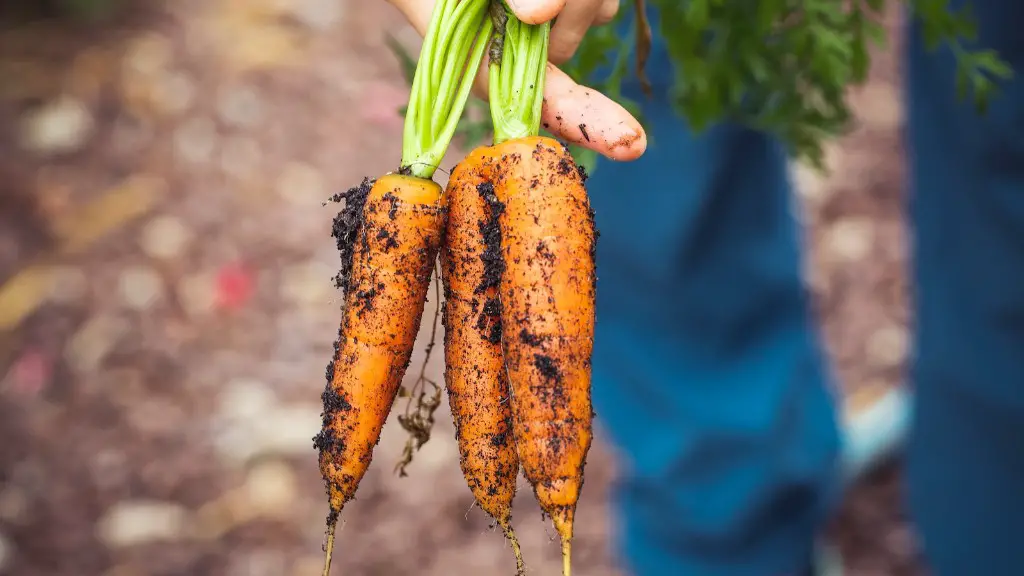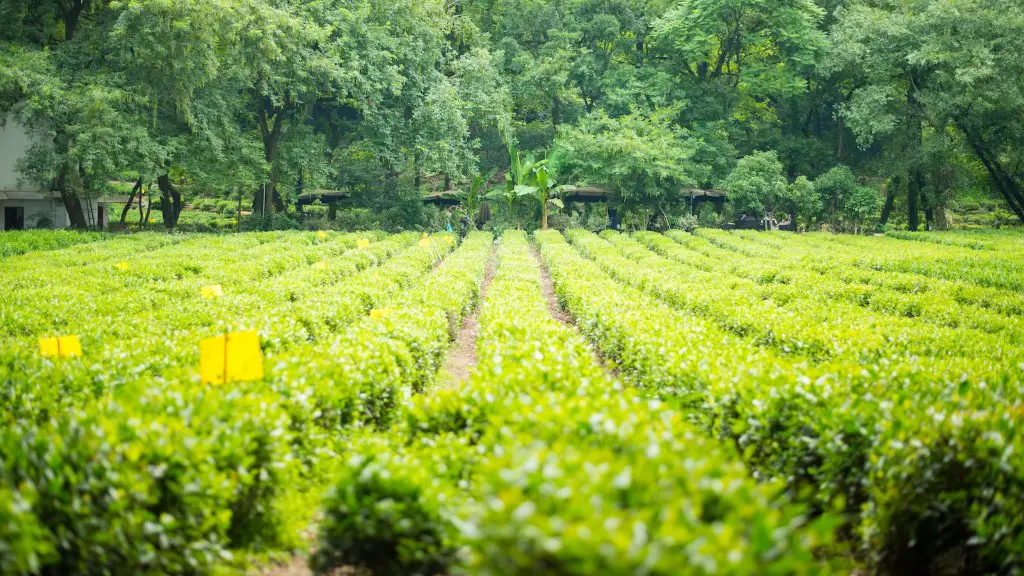Farming and agriculture have been around for thousands of years. The way we farm and the techniques we use have undergone a lot of changes and advances, thanks in part to biotechnology. Biotechnology is the application of scientific and engineering principles to the processing of materials by biological agents to provide goods and services. In other words, it’s using living things to make products or do tasks. In agriculture, biotechnology is used to develop crops that are resistant to herbicides and pests, and that can tolerate different environmental conditions. These crops can then be used to help farmers increase yields and produce food more efficiently.
Biotechnology has improved farming and modern agriculture by allowing farmers to grow crops that are resistant to herbicides and pests, and by providing new methods for improving crop yields. Biotechnology has also allowed for the development of new vaccines and other treatments for animals, which has helped to improve the health of livestock.
What are three examples of how biotechnology might be used in agriculture?
Biotechnology has given rise to a number of practical applications, one of which is disease-free plants. These plants can be produced through micropropagation, a process whereby plant tissue is cultured in a controlled environment. This method can be used to create clones of plants that are resistant to diseases.
Other practical applications of biotechnology include the fortification of crops, the production of animal feed, and the reproduction of fish in aquaculture. Biotechnology can also be used to create pest-resistant and drought-resistant crops. Finally, biotechnology can be used to produce biofuels.
Animal biotechnology is the application of scientific and engineering principles to the processing of animal products for human use. Animal biotechnology has been used to produce genetically modified animals that synthesize therapeutic proteins, have improved growth rates or are resistant to disease. Animal biotechnology is a rapidly growing field with the potential to improve the quality of life for both animals and humans.
How does biotechnology improve agriculture
Biotech crops can make farming more profitable by increasing crop quality and may in some cases increase yields. The use of some of these crops can simplify work and improve safety for farmers. This allows farmers to spend less of their time managing their crops and more time on other profitable activities.
Agricultural biotechnology can help to boost food production in both the developed and the developing worlds. In developed countries, biotechnology can help to reduce vulnerability to pests, viruses, and drought, and can also help to improve crop yields. In developing countries, biotechnology can help to improve food security by increasing crop yields and by providing a more reliable source of food. Agricultural biotechnology can also help to reduce malnutrition by providing more nutritious foods.
What are 5 benefits of biotechnology?
Biotechnology is the application of scientific and engineering principles to the processing of materials by biological agents to provide goods and services.
The main benefits of biotechnology are:
1. Bioproduction of sustainable chemicals, energy and other materials
2. Genetically modified crops increases sustainable food production
3. Seawater bioprocesses to produce fuel and chemicals
4. Zero-waste bio-processing
5. Carbon dioxide as a raw material
6. Regenerative medicine to create new organs
Biotechnology has the potential to provide many advantages, especially in terms of environmental protection, higher yields, and improved human health. In terms of environmental protection, biotechnology can help to reduce the impact of human activities on the environment by enabling the development of more environmentally friendly products and processes. In terms of higher yields, biotechnology can help to improve the efficiency of agricultural production, making it possible to produce more food with less land and water. Finally, in terms of improved human health, biotechnology can help to develop new and more effective treatments for diseases, as well as to improve the safety and quality of food products.
What are 10 benefits of biotechnology?
Biotechnology has revolutionized the agricultural sector and has led to remarkable gains in crop productivity and quality. However, these advances come at a cost and require significant investment in terms of money and expertise. The benefits of biotechnology must be carefully balanced against the risks involved in order to ensure its responsible and sustainable use.
The pros of agricultural biotechnology far outweigh the cons. The potential to increase crop yields, reduce pesticide use, and make crops more resilient to climate change are all major positives that can have a huge impact on the world. The negatives, such as the potential for negative impacts on human health and the environment, are much less significant.
How can biotechnology improve the living standards of farmers
The role of biotechnology in agriculture has been growing rapidly in recent years. Agricultural biotechnology includes a wide range of tools and techniques that are used to improve the productivity, quality, and safety of crops. One area that has seen significant advances is in the area of pest management.
Biotechnology has reduced reliance on chemical pesticides by developing pest-resistant crops. This is pocket-friendly for farmers and eco-friendly for consumers by eliminating harmful chemicals from the ecosystem. In addition, post-harvest losses have been reduced by increasing crops’ abilities to withstand the transportation period.
Biotechnology has come a long way in recent years, and its applications are becoming more and more widespread. From industrial manufacturing to agriculture and even medicine, biotechnology is providing new ways to improve efficiency and quality while reducing our impact on the environment.
What is biotechnology and why is it so important?
Biotechnology is the application of scientific and engineering principles to the processing of materials by biological agents to create new or improved products.
Biotechnology has been used for centuries to produce food and beverages, as well as to generate useful substances such as drugs and antibiotics. However, the term “biotechnology” was not coined until the early 20th century, when scientists began to more systematically study and manipulate biological processes.
Since then, biotechnology has become an essential tool in many areas of scientific research, including medicine, agriculture, and environmental remediation. It also has broad commercial applications, including the production of genetically-modified crops, pharmaceuticals, and industrial enzymes.
Biotechnology holds great promise for improving the quality of life for people around the world. However, it also raises ethical and regulatory challenges that must be carefully considered.
Agricultural biotechnology has the potential to reduce greenhouse gas emissions in a number of ways. For example, by developing crops that can be used for sustainable biofuels, or by developing fruits and vegetables that stay fresh for longer and reduce food waste.
How is technology used in agriculture
Sophisticated agricultural technologies such as robots, temperature and moisture sensors, aerial images, and GPS technology are routine today. These advanced devices and precision agriculture and robotic systems allow businesses to be more profitable, efficient, safer, and more environmentally friendly.
Biotechnology has revolutionized multiple industries, with DNA profiling and DNA cloning being two of the most notable applications. In addition, biotechnology has also been used to create transgenic organisms, to map genomes, and to create stem cells and tissue engineering. These applications have led to significant advances in the areas of medicine, agriculture, and industry.
What problems does biotechnology solve?
The application of biotechnology to solve global challenges is an area of ongoing scientific research. Recent advancements in the field of biotechnology have led to the development of new solutions to combat the spread of infectious diseases, reduce hunger, and remediate environmental degradation. These solutions offer the potential to greatly improve the lives of people across the globe.
Industrial biotechnology can be used to produce a wide variety of industrially useful products, including food and feed, chemicals, detergents, paper and pulp, textiles, biofuels, and biogas. By using cells or components of cells (e.g., enzymes), industrial biotechnology can provide more efficient and environmentally sustainable ways to produce these products.
Warp Up
Biotechnology has helped farmers to improve the efficiency of crop production and to develop plants that are resistant to pests and disease. Biotechnology has also played a role in the development of new animal husbandry techniques, such as the use of genetic engineering to produce animals that are more resistant to disease.
Thanks to biotechnology, farmers are now able to grow healthier and more resilient crops that can withstand disease, pests, and extreme weather conditions. This has not only made it possible to produce more food to feed a growing population, but has also helped to reduce poverty and hunger in many parts of the world.





